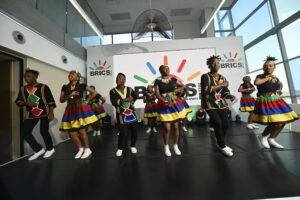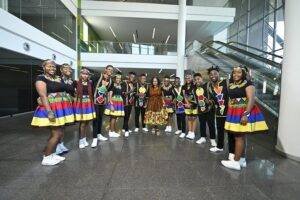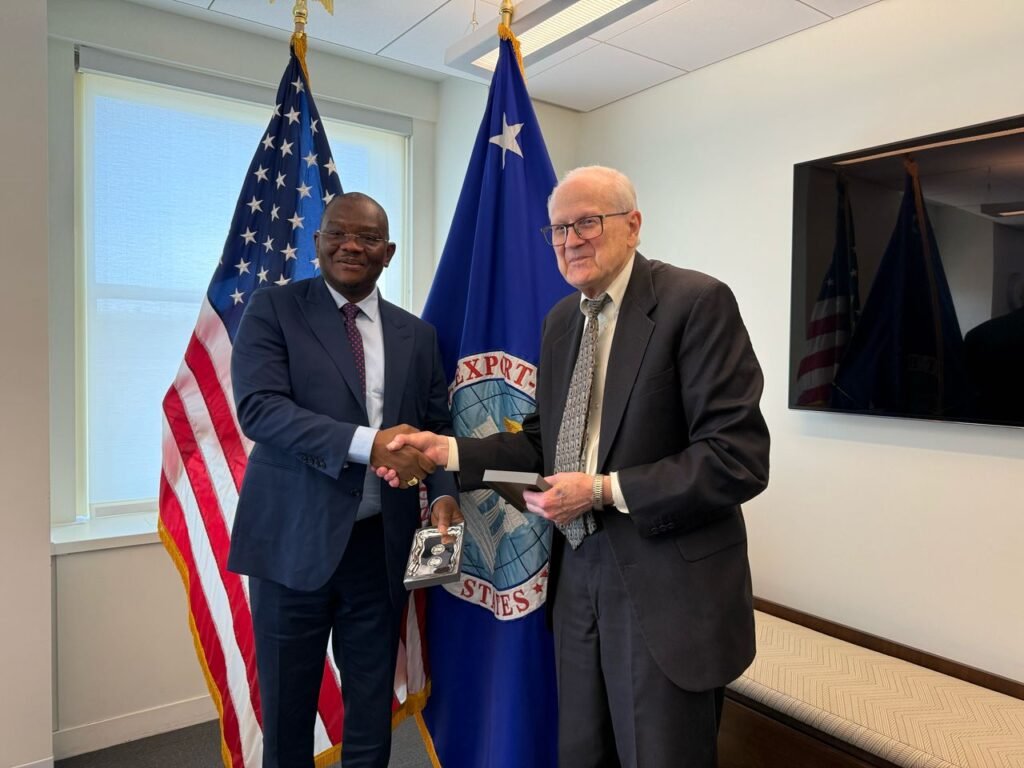Hot!
South African Tourism Celebrates BRICS Business Council’s 10-year anniversary

Ahead of the BRICS Summit, which officially kicks off today to 24 August 2023, South African Tourism (SA Tourism) hosted delegates at the welcome event of the 10th Anniversary of the BRICS Business Council on Sunday afternoon.
The BRICS Business Council was established during the Fifth BRICS Summit held on 26th – 27th March 2013 in Durban, South Africa.



The objective of creating the council was to constitute a platform that promotes and strengthens business, trade, and investment ties amongst the business communities of the five BRICS countries.
It was also formed to ensure that there is regular dialogue between the business communities of the BRICS nations and the governments of the BRICS countries. This year, therefore, South African Tourism, along with the BRICS Business Council, is celebrating a decade of cooperation and partnership.
“Over the years, we have seen growing enthusiasm for travel among the people of BRICS countries. We can all agree that tourism serves as a bridge that connects cultures and opens avenues of dialogue that transcend language barriers and political boundaries. Tourism is also a contributor to economic growth. Tourism is a force that unites people in their pursuit of discovery, adventure, and shared experiences. Therefore, tourism has a profound impact on strengthening bilateral relations,” said Nomasonto Ndlovu, Acting CEO of South African Tourism speaking at the welcome event,
“South Africa was the birthplace of the BRICS Business Council and we brought together our respective business communities with the objective of creating a platform to strengthen business, trade, investment ties, travel and connections amongst business communities across the borders of our respective countries”, BRICS Business Council Chairperson, Ms. Busi Mabuza said.
In highlighting South Africa’s essence through arts, culture, and storytelling, the guests had the pleasure of enjoying a performance by Lebo Mashile, an award-winning poet, author, presenter, actress, and producer.
The globally-acclaimed Ndlovu Youth Choir delivered a captivating performance that brought South Africa’s spirit to the stage with a harmonious fusion of talent, culture, resonant voices and vibrant rhythms that echo the nation’s heartbeat.
“Hosting events such as the BRICS Summit showcases South Africa’s hosting capacity and capability and contributes to our tourism sector recovery. Through MICE [Meetings Incentives Conferences and Exhibitions] events such as the BRICS Summit, we are enhancing collaboration, spurring economic growth, and deepening cross-cultural exchanges among our various nations. Of course, in the process, we stimulate innovation and drive progress that extends far beyond borders. I invite you to explore our many MICE facilities and venues not only here in Gauteng but the rest of South Africa too,” Ndlovu added.
Attending the event were the big business minds and captains of the tourism industry whom Ndlovu encouraged to not only attend the meetings as part of the BRICS summit but to also take time to explore beyond the summit’s corridors.
South African Tourism also brought the sustainability village to the event. Designed to support and boost emerging local businesses, the sustainability village is a collection of vendors selling authentically and uniquely South African arts and crafts and fashion items. It offered the guests an opportunity to shop and buy items thus symbolically taking a piece of South Africa back home with them.
Between January and June 2023, South Africa welcomed 9 118 tourists from Brazil up by 60.3% when compared to the same period in 2022. South Africa received 13 806 tourists from Russia up by 146.3% when compared to January to June 2022. The country welcomed 41 668 Indian tourists up by 82.5 % when compared to the same period last year and 16 290 Chinese tourists came to South Africa in the first half of 2023 marking a 266.9% increase when compared to the first half of 2022.
Hot!
GEXIM deepens relations with US EXIM Bank

A management team of the Ghana Export – Import Bank (GEXIM) led by the Acting Chief Executive, Sylvester Mensah met with the leadership of the Export–Import Bank of the United States (US EXIM) on Wednesday April 23, 2025 in Washington DC, United States of America.
The Acting President and Chairman of US EXIM, Mr. James C. Cruse and Vice President, International Relations, Ms. Isabel Galdiz received the GEXIM delegation, which included Deputy CEO for Banking, Mr. Moses Klu Mensah and Head of International Cooperation, Mr. Jonathan Christopher Koney at the headquarters of US EXIM.

The meeting offered the GEXIM team the opportunity to share the strategic direction of the Bank in line with the resetting agenda of the President of the Republic, His Excellency John Dramani Mahama for the repositioning of the Ghanaian economy into an export-led one by providing the requisite investment to Ghanaian businesses.
Mr. James C. Cruse expressed US EXIM’s eagerness to deepen its existing relations with GEXIM and proposed the signing of a new Cooperative Framework Agreement following the expiration of a Memorandum of Understanding signed in 2019 to utilize US EXIM’s medium term loan guarantees to procure machinery by GEXIM for qualified Ghanaian Small and Medium-sized Enterprises (SMEs).
Mr.Sylvester Mensah thanked the Acting President and Chairman of US EXIM for hosting the GEXIM delegation and reaffirmed the Ghanaian government’s commitment to strengthening trade and investment between Ghana and its global partners for economic transformation of Ghana with GEXIM playing a pivotal role.
The two teams will be meeting on the sidelines of the 2025 US EXIM Annual Conference on 29th and April 30, 2025 to explore possible areas of collaboration and matching Ghanaian businesses to American companies. The meeting ended with an exchange of gifts.
Hot!
Many SOEs have been used as mere instruments for personal wealth accumulation –Pres.Mahama

President John Dramani Mahama has expressed concern over the misuse of State-Owned Enterprises (SOEs) for personal financial gain by individuals in leadership positions.
Speaking during a meeting with Chief Executives of specified entities under the State Interest and Governance Authority (SIGA) on Thursday, March 13, the President directly attributed the dire state of SOEs to their leadership, accusing chief executives, management teams, and governing boards of prioritising personal enrichment over organisational efficiency.
He pointed to bloated budgets, unjustified allowances, and unnecessary expenditures as factors draining public funds while SOEs continue to rely on government bailouts.
“Many SOEs have been used as mere instruments for personal wealth accumulation by appointees. The chief executives, management, and boards of these enterprises are responsible for this situation. Some SOEs have become perennial loss-makers, draining public funds with bloated budgets, unjustified allowances, and unnecessary expenditures while relying on government bailouts as if entitled to them. Many of these entities are at their lowest point in the entire history of the Fourth Republic,” he said.
President Mahama further noted that many SOEs have been plagued by inefficiencies, corruption, and mismanagement, leading to consistent financial losses. He cited the 2023 State Ownership Report by the State Interests and Governance Authority (SIGA), which highlighted systemic inefficiencies and wasteful expenditures within these entities.
He therefore reaffirmed his commitment to reforming under-performing SOEs and ensuring they serve national interests.
He warned that loss-making SOEs will no longer be tolerated and will either be merged, privatised, or closed.
“I will assess you based on your performance. If you do not align with the pace of the reset agenda, you may be asked to step aside. If that adds to the horror movie, so be it,” he added.
Source: Myjoyonline.com







